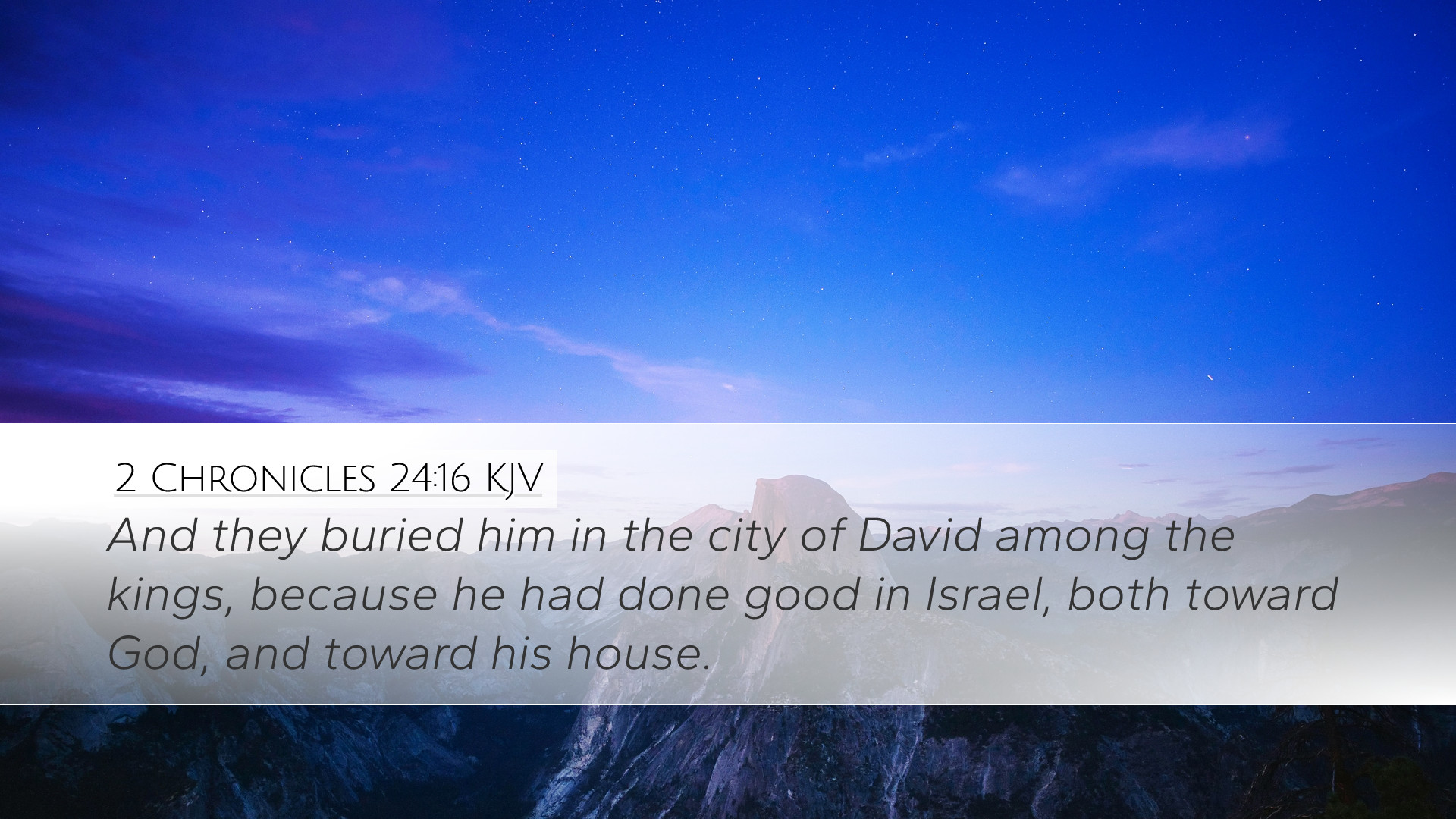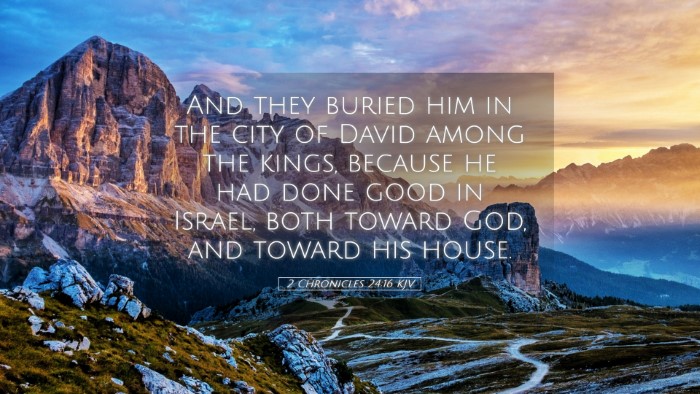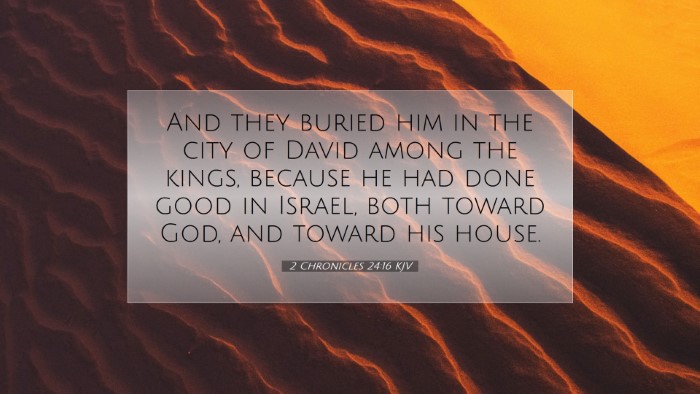Commentary on 2 Chronicles 24:16
Verse Reference: 2 Chronicles 24:16 - “And they buried him in the city of David among the kings, because he had done good in Israel, both toward God and toward his house.”
Introduction
2 Chronicles 24:16 encapsulates the legacy of King Joash of Judah, highlighting his achievements and his end. This verse reflects the biblical theme of honoring faithful leaders while offering rich insights into the relationship between a king’s actions and their implications for the nation.
Historical Context
The history of Judah during Joash's reign is marked by religious reforms and the restoration of the temple. Following the influence of Jehoiada the priest, Joash began his kingship with a commitment to restore proper worship and reverence for God. However, the latter part of his life saw a decline in his faithfulness, juxtaposed with Judah's fluctuating spiritual commitment.
Analysis of Key Phrases
- “They buried him in the city of David” - This signifies honor and respect. Burial in this sacred area was reserved for those who were esteemed, connecting Joash with the legacy of the faithful kings of Israel.
- “among the kings” - This inclusion reflects acknowledgment not just of his kingship but of the covenant relationship that Israel had with God through their rulers.
- “done good in Israel” - This phrase highlights the moral and spiritual deeds of Joash, particularly emphasizing his earlier efforts in temple restoration and adherence to divine commandments.
- “both toward God and toward his house” - The duality here illustrates the connection between divine commandments and social responsibility, indicating that true leadership encompasses spirituality as well as care for the community.
Theological Insights
This verse provides a profound lesson on the divine assessment of leadership. The dual aspects of Joash's legacy indicate God’s valuation of both personal faith and civic duty. While the verse acknowledges Joash’s good deeds, it invites deeper reflection on how the trajectory of one's life can shift dramatically, as seen in Joash's later years.
Matthew Henry’s Perspective
According to Matthew Henry, Joash’s life exemplifies the impact of godly influences, particularly that of Jehoiada. Henry emphasizes that the early devotion of Joash under Jehoiada’s tutelage laid a foundation for his initial successes but also comments on the tragedy of his later deviation from righteousness. This reflects a significant biblical principle regarding the importance of mentorship and the vulnerabilities of leaders in succumbing to peer pressure or pride.
Albert Barnes' Commentary
Albert Barnes highlights the commendation of Joash’s achievements. He notes that though Joash eventually turned away from true worship, the statement of him being buried among the kings underscores that God takes note of the significant works of a ruler, regardless of their eventual failures. Barnes stresses the reality of divine judgment and mercy, showcasing how God can use flawed vessels for His purposes while also allowing for accountability in their actions.
Adam Clarke’s Insights
Adam Clarke provides a detailed reflection on the implications of Joash’s reign. He writes about the dangers of departing from the path of righteousness after having once known the truth. Clarke indicates that the ending of Joash’s reign serves as a warning to all leaders about the potential risks of falling into apostasy, especially after a period of genuine spiritual renewal.
Application for Contemporary Leaders
2 Chronicles 24:16 serves as a critical reminder for contemporary pastors, leaders, and believers alike. The legacy we create may have lasting effects on those we lead. It urges leaders to examine their lives continually in light of how they represent God to their communities. They are called to maintain integrity and a commitment to God even in the face of challenges and temptations.
Conclusion
In summary, 2 Chronicles 24:16 captures the complex interplay of good deeds, legacy, and the reality of human fallibility. It teaches that while a leader's good works can be honored and remembered, there remains a significant spiritual responsibility to remain faithful to God throughout one's life. The reflections of Henry, Barnes, and Clarke together call for intellectual diligence and spiritual vigilance, compelling the reader to assess their own life’s work in light of God's ultimate judgment.


